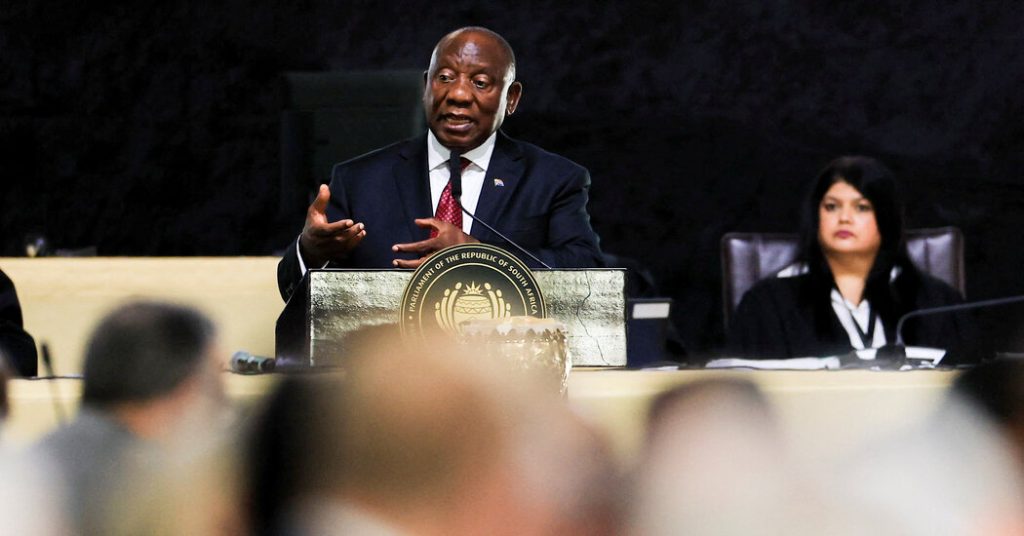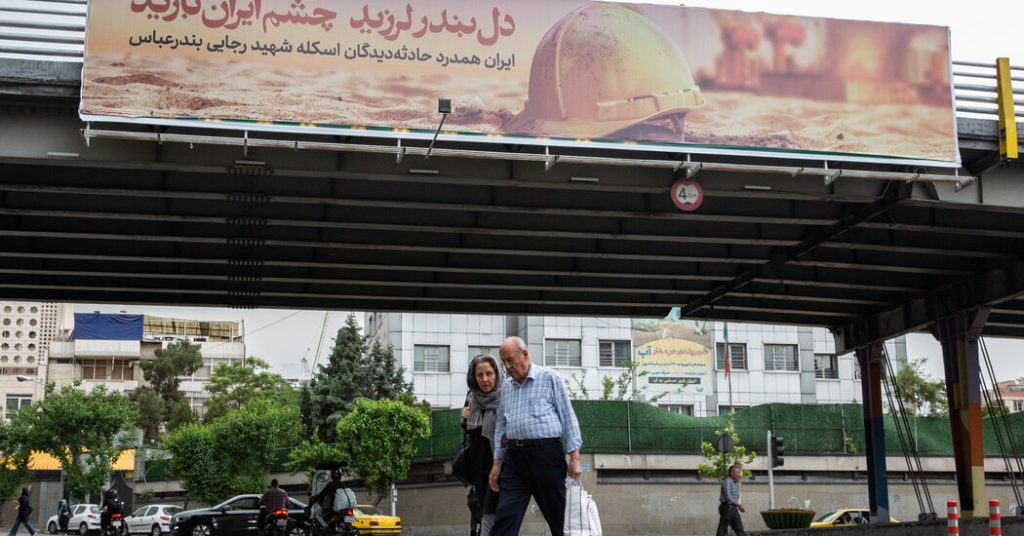CHICAGO — Christopher Ellington’s South Side photography studio crashed in 2020 with the onset of the pandemic. By March 2021, he was scraping by on a tax preparation and financial advice business when gunshots rang out one day as he was leaving work. Two bullets from a drive-by shooter pierced his head and left him permanently blind.
The creditors were closing in, the rent notices piling up. And then a helping hand came late last summer from Mayor Lori Lightfoot’s administration: the first of a year’s worth of monthly $500 checks, with no strings attached and almost no questions asked.
“Talk about shock,” said Mr. Ellington, 32. “It was ‘Hey, the government is doing this? Wait a minute. I don’t have to, you know, report this and report that, and you don’t have to go through all of my business and I don’t have to watch what I say?’ I was like, ‘This is how it should be.’”
Chicago and the surrounding suburbs of Cook County are conducting the largest experiment of its kind in the nation, an effort to supply thousands of residents with a basic level of subsistence, not in the form of food, housing or child care — just cash. Ms. Lightfoot’s $31.5 million Resilient Communities Pilot selected 5,000 city residents in August to receive a guaranteed cash income for a year. The first $500 checks from a separate program, a $42 million county pilot, went out in December to 3,250 residents concentrated in the near-in Chicago suburbs.
On Monday at its conference in Washington, which started over the weekend and runs through Tuesday, the National Association of Counties will announce a network of county-level basic income programs to match the mayoral initiatives that have sprouted to 50 cities.
Both Chicago and Cook County are tapping money sent to local governments through the 2021 pandemic relief law known as the American Rescue Plan. Both programs are administered by a group, GiveDirectly, that had been better known for helping poor people in developing nations. The city and county efforts are being assessed by social scientists at the University of Chicago.
Politics Across the United States
From the halls of government to the campaign trail, here’s a look at the political landscape in America.
- Union Support: In places like West Virginia, money from three major laws passed by Congress is pouring into the alternative energy industry and other projects. Democrats hope it will lead to increased union strength.
- A Chaotic Majority: The defining dynamic for House Republicans, who have a slim majority, may be the push and pull between the far right and the rest of the conference. Here is a closer look at the fractious caucus.
- A New Kind of Welfare: In a post-Roe world, some conservative thinkers are pushing Republicans to move on from Reagan-era family policy and send cash to families. A few lawmakers are listening.
- Flipping the Pennsylvania House: Democrats swept three special elections in solidly blue House districts, putting the party in the majority for the first time in a dozen years by a single seat.
“This was a once-in-a-lifetime moment for us to be bold and innovative,” said Brandie Knazze, commissioner of the Chicago Department of Family and Support Services.
For Democrats, the concept is a wager on big government at a time when faith in democratic governance is at a low ebb. For Republicans, it’s a return to discredited welfare handouts that waste money and foster dependency.
Whatever the outcome, the spread of basic income programs is a reminder of the growing divide between Democrats and Republicans, urban voters and rural conservatives, those who want more government in people’s lives and those who want less.
“There’s no indication that I see that the American public thinks what we really need is more aid to people who choose not to work,” said Robert Rector, a conservative public assistance expert at the Heritage Foundation who helped shape the welfare changes of the 1990s.
But in Democratic cities, in states deep blue and bright red, such as Columbia, S.C., Shreveport, La., and Birmingham, Ala., political leaders are moving in the opposite direction. Mayor Lightfoot may be in the throes of a difficult campaign for re-election, but none of her eight rivals for the Democratic mayoral nomination ahead of the first round of voting on Feb. 28 have made an issue of her guaranteed income effort.
Instead, the mayor is picking a fight with the national Republican Party.
“These are the same people that didn’t want to expand health care, and look at the number of people in their communities, these ruby red communities, that are suffering,” Ms. Lightfoot said. “These are the same people, frankly, that are attacking the very core of our democracy, demonizing being different, being the other, based upon your religion, your creed, who you love, your gender identity.”
She added: “I’m the mayor of the city of Chicago. I know what our people need.”
Adrian Talbott, associate dean for civic engagement at the Crown Family School of Social Work at the University of Chicago, called the effort “a prime example of Democrats’ assertion that government can work.” He added that the expectation was, “with big bets on behalf of traditionally marginalized, vulnerable populations in light of the pandemic, government can meet this moment.”
“For Chicago and Cook County,” Mr. Talbott continued, “guaranteed basic income is the tip of the spear.”
The income cutoff for Chicago and Cook County is forgiving, 250 percent of the federal poverty level — $36,450 a year for an individual, $75,000 for a family of four — though acceptance was weighted toward certain groups such as homeless people, veterans and caregivers.
University of Chicago researchers are using surveys, in-person interviews and economic, labor, criminal, legal and educational data to track recipients of the money and an even larger control group not selected for the grants.
Ms. Lightfoot said the future of the pilot project would depend on the university’s assessment. Toni Preckwinkle, president of the Cook County Board of Commissioners, insisted that the county project would not end when the federal funds were exhausted. The county will tap funds from newly legalized cannabis sales and other revenue streams to keep it going, using the university’s assessment to guide it and decide whether to expand it.
When she talks about the origins of the guaranteed basic income concept, Ms. Preckwinkle invokes not only the Rev. Dr. Martin Luther King Jr., but also the more confrontational Black Panthers.
“What’s happened in this country historically is these ideas get tried out at the local level, in cities and counties and states, and when there’s enough momentum, they get adopted by the federal government,” she said. “So that’s what we’re hoping will happen.”
To conservatives, it’s little wonder that a program funded by federal taxpayers that doles out money with no strings attached would be popular — to cities and recipients. But, Mr. Rector said, previous experiments in cash assistance, like a “negative income tax” program for the poor in the 1970s, showed employment reduction and negative impacts on marriage that lasted long after the efforts ended. Programs like the earned-income tax credit for low-wage workers and work requirements imposed in the 1990s were a corrective to those failures, he said.
The latest incarnation, guaranteed basic income, will keep its able-bodied recipients “in extended adolescence, and it’s really good if you could do it with a boatload of free federal money,” Mr. Rector said.
The proliferation of such programs “is a clear statement that we want a post-work economy,” he added.
Liberal academics have their own criticisms of such programs, which gained prominence when the 2020 Democratic presidential candidate Andrew Yang proposed a $1,000-a-month universal basic income. A 2019 report by European labor unions expressed worry that unconditional cash assistance to create a universal income floor in a developed economy might render targeted social services obsolete, ending government functions that ensure equitable health care, child care and educational services.
With so many social service programs struggling under the weight of bureaucracy and inefficiency, the Chicago-area pilot programs are aimed not only at efficiently delivering assistance, but also at rescuing citizens’ faith in government at a time when democratic principles are being questioned, advocates say.
Mr. Ellington remembered getting his application in at the last moment, as one of 176,000 Chicagoans who applied in just three weeks. He heard back that he had been accepted just days later. The first check arrived within weeks, and because the programs do not count against other relief efforts, like Social Security disability payments, that $500 a month is a true income boost.
“It completely transformed my view of the government, not only in Chicago but nationally,” he said. “It gave me an inkling of hope that things are happening.”





